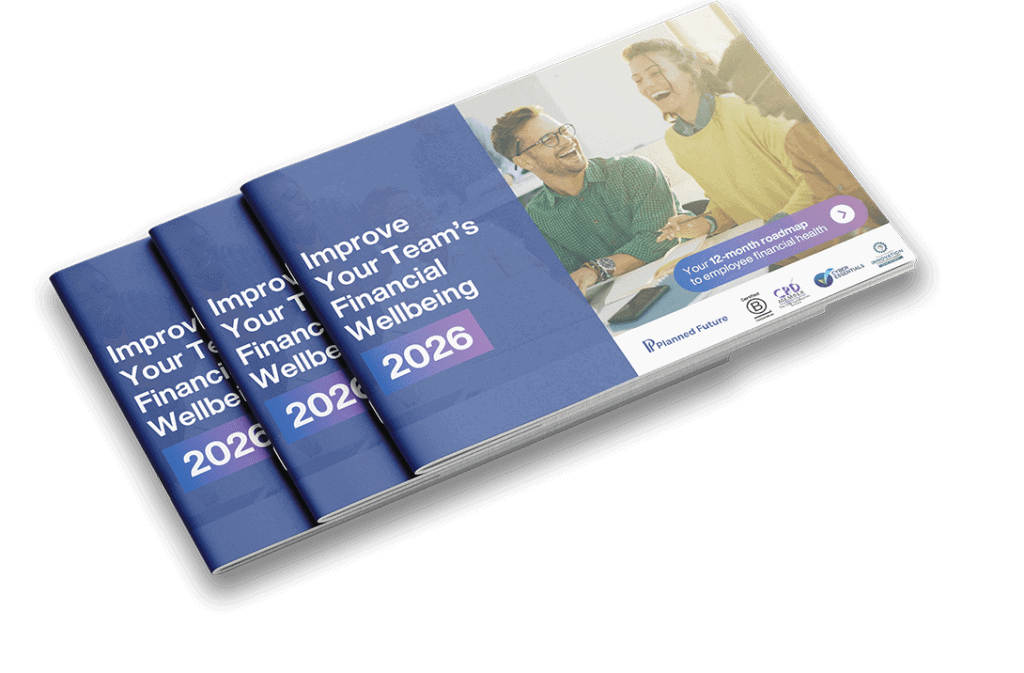Table of Contents
Financial wellbeing support is evolving rapidly, yet money stress still remains one of the biggest challenges employees face. Many organisations have begun to recognise the importance of financial wellbeing support and invested in valuable tools such as financial education and wellbeing platforms that empower people with practical knowledge. However few consider the impact of Money Mindset.
While financial education resources play a crucial role, information alone doesn’t always shift behaviour. To create lasting change, employees also need to understand the mindset behind their money habits including the beliefs, emotions, and attitudes that influence every financial decision they make.
By combining practical education with mindset awareness, organisations can help employees build not just financial literacy, but lasting financial confidence.
Why Financial Literacy Alone Isn’t Enough
Traditional financial education teaches an important aspect of managing money which addresses the “how” (How to save, invest, or plan for retirement). But it is also important to compliment this with addressing the “why” (Why some people still overspend, avoid financial conversations, or feel anxious despite knowing what to do).
According to a 2025 workplace wellbeing survey, over 72% of UK employees report feeling stressed about their finances*. The problem isn’t always a lack of information but the emotional barriers that stop people from applying it.
Money is often intertwined with our sense of identity, self-worth, and past experiences. These underlying beliefs shape how employees relate to money influencing their confidence, daily choices, and the financial decisions they make about their future.
Financial literacy informs behaviour but Money Mindset transforms it.
Understanding The Psychology Behind Money
Every employee has a money mindset often formed within childhood/early adulthood. These subconscious beliefs drive money behaviour much more powerfully than interest rates or salary bands.
Some common money mindset patterns include:
- Scarcity thinking: “There’s never enough.”
- Self-worth tied to net worth: “I’m only as valuable as my salary.”
- Avoidance: “Money stresses me out, so I try not to think about it.”
- Fear of failure: “If I invest or make a change, I’ll lose everything.”
These mindsets can quietly influence how employees approach their finances affecting their confidence, decision-making, and overall wellbeing. Left unaddressed, they can lead to ongoing stress and poor financial choices that impact both personal and professional life.
So What Does Money Mindset Training Look Like?
Money mindset training blends financial education with emotional wellbeing, helping people build a healthier relationship with money. It goes beyond practical tools to explore attitudes, emotions, and self-awareness towards spending.
Practical elements might include…
- Reflective exercises exploring early money experiences and inherited beliefs.
- Mindfulness techniques to reduce cope with stress and financial anxiety.
- Workshops or safe discussions that normalise conversations about money.
Why It Matters To Employers
Financial wellbeing is no longer an employee benefit that is ‘nice to have’ but has measurable business impact.
- Reduced Financial Stress
Money stress is the leading cause of anxiety for working adults. Tackling the emotional root causes can lower absenteeism and improve focus.
- Improved Decision-Making
Employees with a positive money mindset are more likely to make thoughtful, long-term financial decisions. This not only reduces future financial stress but also supports greater confidence and focus in day-to-day life, including enhanced productivity at work.
- Enhanced Performance and Retention
Confident employees are more engaged, productive, and willing to pursue growth opportunities.
A 2025 Mercer study found that employees who feel financially confident are twice as likely to describe themselves as “thriving” at work. Confidence, not income, is the key differentiator.
The Future of Financial Wellbeing
As workplaces evolve, the most effective wellbeing strategies will shift from programmes that inform to those that transform.
Financial wellbeing in 2026 and beyond will be defined by emotional literacy, self-awareness, and empowerment. Employees don’t just need to know what to do with money but have the self-belief to know that they can.
When employees understand their money mindset, they gain clarity, control, and confidence which are all qualities that translate directly into improved wellbeing and workplace performance.
Money Mindset
Money Mindset is a CPD Certified workshop and eLearning module which focuses on helping attendees understand their relationship with money and the psychological motivations behind spending.
This session explores your money mindset and learning how to build good habits. Increasing self-awareness around spending will help you to set and achieve financial goals and improve your financial future.

